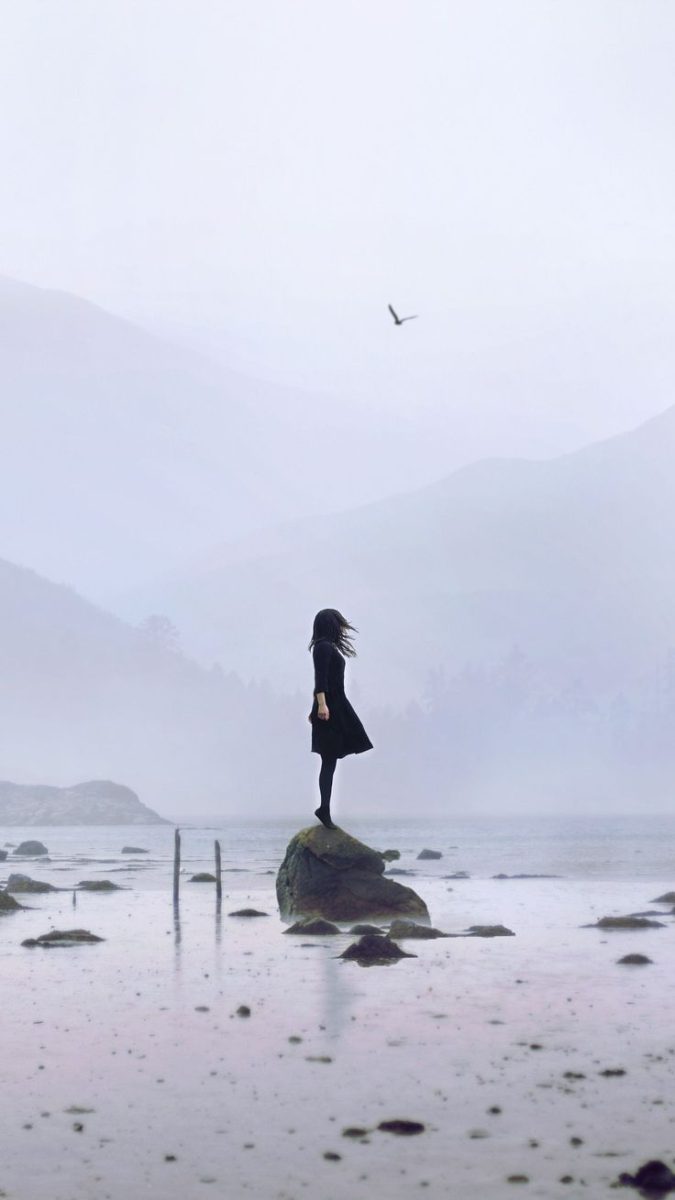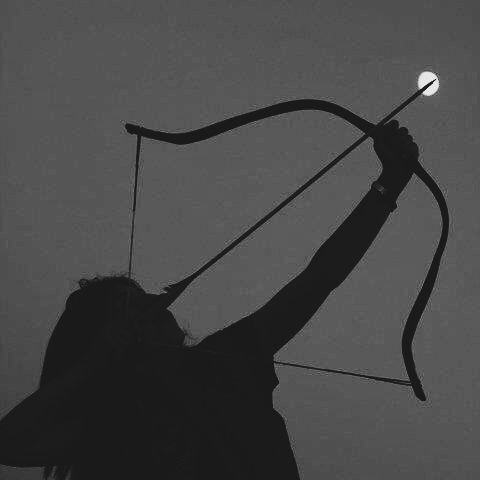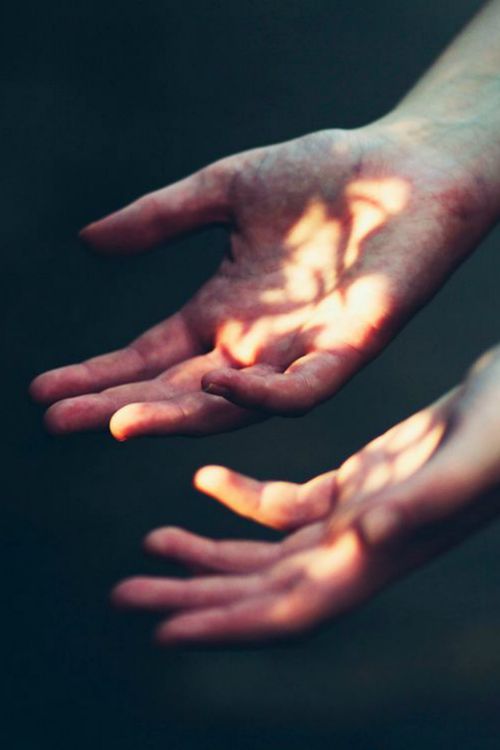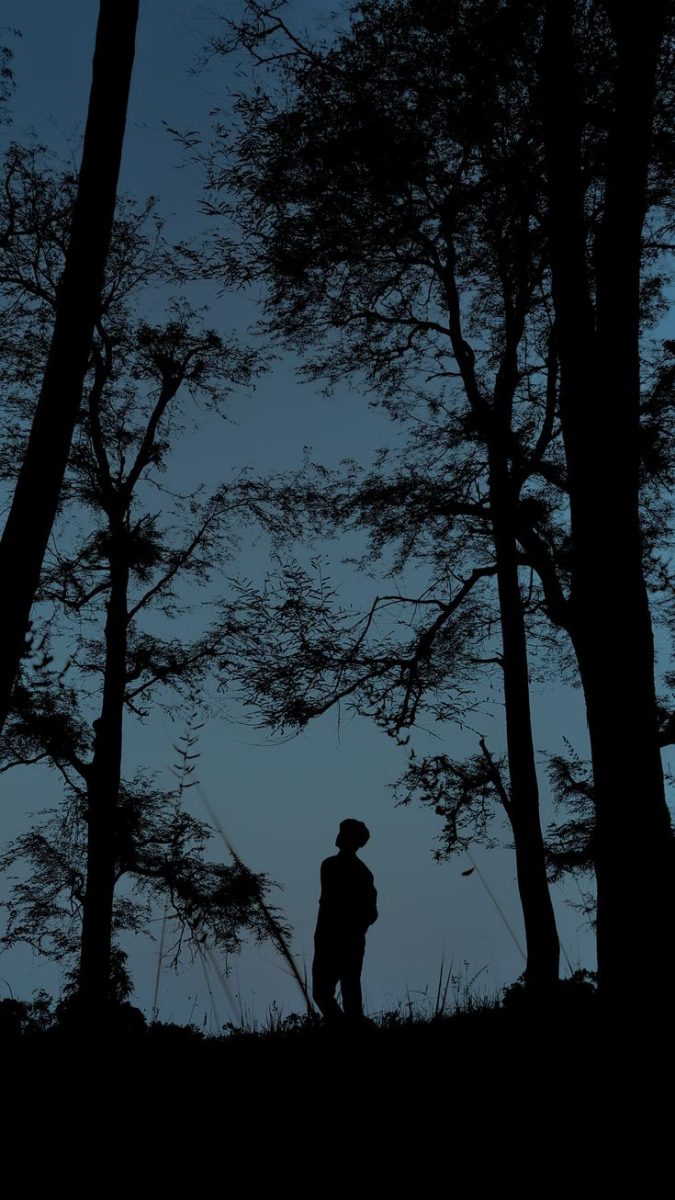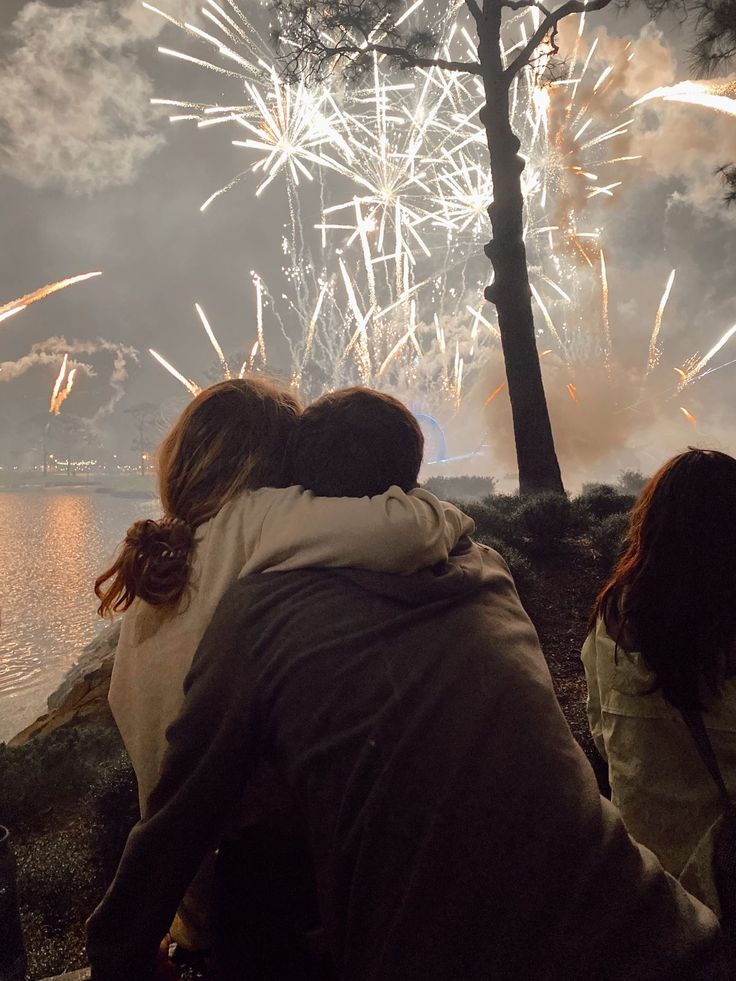The Black Sheep
2023 Creative Writing Contest submission
Lilly Melton, 11th grade
When a baby is born in the small, ancient isolated Filipino village of Kaharian Tala, the entire population gathers around the newborn infant, clasping their hands around a fire with high hopes. The mother and father of the child are the most terrified of them all—their child’s entire future is decided on this one ritual. They hold the child tightly, desperately chanting prayers, shaking with pure terror and anticipation. The village chief approaches the infant, holding a tiny woven basket of a sacred, mysterious powder. Its origins and contents have been a great mystery that has baffled the village for centuries. The chief kneels near the infant and bows his head in prayer, then tosses the powder into the fire. The chief then carefully picks up the newborn, places the infant above the fire, and chants “To the spirits and deities, we implore, guard the child, may they be ready for their journey. May good health touch them, and may happiness always ignite in their heart.”
The fire suddenly dies, turns into dust, and makes an extraordinary shape of an animal. The animal corresponds to the personality of the child, and the color indicates the infant’s future. Sometimes the animal will be multiple colors depending on their future. Yellow and pink are heavily celebrated colors because yellow represents a happy, fulfilled life, and pink represents that the infant will find true love and start a happy family. If this is the case, there is a large celebration held, with lavish meals and vivacious music and dancing. Blue and red colors are dreaded and lamented, blue means that the person will live a miserable life, and red means the individual will die either young or gruesomely. If the infant is born with a color such as blue or red, the village mourns, and sympathy gifts from villagers are given to the devastated parents.
When Cassandra was born, the village did not celebrate or mourn—there was only fear and anger. Her ritual was eerie from the start, for her father had died from hanging himself a week before she was born, and her mother barely survived with Cassandra being a breech baby, which put Cassandra’s mother in excruciating, unbearable pain. When the powder was thrown onto the fire, a horrifying image of a sheep as black as midnight covered in what was thought to be bloodstains formed. The village immediately panicked and was thrown into uproar, some even suggesting that they should kill the child while they have the chance. There was only one other person recorded to have a black animal, and it was an infamous villager named Ravana—who is known for assassinating the former chief and causing the civil war that split the village into two. A black animal is said to cause destruction and death throughout its life.
Ravana’s animal was a wolf, which represents an aggressive, blood-thirsty individual, while Cassandra’s animal was a sheep—which symbolizes kindness, compassion, and innocence.
There was a massive disagreement on whether or not the child should be killed. Some people argued that the color is inevitable, and destruction will ensue when the child is killed, for there was already an argument from it. To avoid another civil war, the villagers eventually decided to let Cassandra live—but isolated with her mother, only to return to the village when accompanied by her when absolutely necessary.
Cassandra, who is now eleven years old, was playing with her best friend, Pangako, in the rain when her mother walked outside of their house. “Cassandra!” she shouted exasperatedly, letting out a heavy sigh. “Look at your clothes. You only have one more clean pair left.” Cassandra glanced at her clothes—they were caked in mud, and grass, and were soaking wet from the rain from playing tag with Pangako. “I’m sorry, Mom,” she replied bitterly. “I didn’t even notice.” She felt awful because she knew how difficult and expensive it was to purchase new clothes in the village.
“Never mind, finish playing and we will go get you some new clothes,” her mother said, slamming the door behind her. Cassandra, looking very upset, stared at the ground. “I feel terrible,” she muttered to Pangako. “I know how much mom hates going to the village.”
“I wouldn’t worry about it,” Pangako stated. “Your crops are almost grown for you to sell,” he reassured as he walked toward Cassandra. “Plus, you needed some new clothes anyway, it’s been a while,” Pangako added as he suddenly pointed to their favorite tree. “Do you wanna climb the tree while we wait for your mom?” He inquired, reaching out his hand, and gesturing Cassandra to grab onto it. “Let’s do it!” Cassandra exclaimed, having lightened up a bit. Cassandra grabbed his hand as Pangako and dragged her to it.
Cassandra could not imagine life without Pangako, and Pangako could not imagine life without Cassandra. They both had one thing in common—their future was cursed. Pangako’s spirit animal was a yellow and red deer, so he was destined to meet a young or gruesome death, but the yellow and the deer meant he was also an innocent, kind, fragile individual, with a happy, fulfilled life.
Pangako’s parents only let Cassandra play with Pangako because they were close family friends with Cassandra’s parents before Cassandra was born. When Cassandra and her mother were forced to move, they moved close to Pangako and his parents so they wouldn’t be alone. Pangako and Cassandra are fairly close in age, and once Pangako was born, Pangako’s parents knew he was doomed from the start—so they let him play with Cassandra. After all, they saw how happy Cassandra made Pangako, and even if his color was red, he was also yellow, and when Pangako was around Cassandra is when his parents noticed him the happiest.
Everyone in the village treated Pangako with sympathy—always bringing him toys, food, and gifts, the village tradition when someone has an unfortunate colored animal. Pangako felt like the only person who treated him like a human being rather than a pitiful soul was Cassandra. They were inseparable, spending almost every hour of the day with each other. People always warned Pangako to stay away from Cassandra, for that she was the reason his animal was red, but he never listened—they were all each other had.
After it was around lunchtime, Cassandra’s mother brought her a change of clothes to go into the village after it had stopped raining. After Cassandra changed, they began their long walk, and upon entering the village, Cassandra was holding her mother’s hand as they observed everyone staring at them with fearful eyes as she passed by.
Although Cassandra did not know this, the people in the village would always gossip about things like how she was secretly evil and planning to wipe out the village, and hiding it under a façade of kindness. They also talked about how the sheep at her ritual was just how she pretended to act, but deep down she was bloodthirsty and plotting against the village. Some people even said they should kill her while they still can to keep everyone safe.
Cassandra’s mother knew and watched the people stare at the two of them. She hated going into the village for this very reason—she hated the way people looked at her and her daughter like they were evil, heartless beings who were going to be responsible for the town’s downfall. She had no idea why Cassandra’s animal was black, for raising Cassandra made her realize how kind of a human being Cassandra is, and she watched bitterly as Cassandra tried her very best to prove she was not evil, but a kind-hearted, well-meaning child.
Cassandra and her mother arrived at the only loom weaver that would sell to both of them—on the condition that they gave twice as many crops for the clothes. While the loom weaver was fitting Cassandra, he made very cautious work, keeping a very far distance. He gave Cassandra a pair of clothes to wear and told them to come back later to pick up the clothes. As they exited the shop, it began to rain again. Cassandra and her mother both could feel the cold, judgmental, fearful eyes locked on their long walk home in the gloomy, pouring rain.
Once Cassandra and her mother arrived home, Cassandra changed into her pajamas and got in her bed. “Mom, am I really going to destroy the village like Ravana did?” Cassandra asked her mom
Cassandra’s mom was taken aback by this question. She sat on Cassandra’s bed, tucking her hair back. “I don’t think so,” she responded calmly. “You are the most kind, caring, sweet girl I know. After all, you were a sheep,” she smiled and she pulled her covers over.
“Everyone doesn’t think that way, though,” Cassandra whined. “You saw how everyone looked at me like I was a monster.”
“Who cares what they think? No one truly knows what black means, after all, it has only happened to one other known person,” she stated. “What I believe is that the black does not mean death and destruction–it means you have a massive impact on the world. I believe you’re going to do great things,” she smiled as she pulled the covers over Cassandra. “If everyone saw how truly kind and caring you were, and gave you a chance, they’d agree with me. They’re acting on fear, not reasoning,” she assured, giving Cassandra a kiss on the forehead. “Go to bed now, it’s getting late,” she smiled as she stood up from the bed and left the room.
“Thank you, mom,” Cassandra smiled. “Goodnight.”
Cassandra could not sleep because she was pondering what her mother said. She really wanted what her mom said to be true, so she began brainstorming ways she could prove that she wasn’t evil. After several sleepless hours of pondering what she could do, she decided to attend the village celebration coming up in a month and make soup for the occasion.
Cassandra and Pangako worked in the month they had to make the best soup possible. Since neither of them had a surplus amount of money, they went into the forest and found ingredients they knew were safe, and every day, tried to make the perfect soup. Every soup they made made their plan seem hopeless, and after many failed attempts to craft the perfect soup, Cassandra and Pangako slowly lost motivation.
A week before the deadline, Pangako and Cassandra decided to take a day off to play patintero and climbed up trees until the sun began to set. Before it got dark, they lay down on the ground next to each other to rest.
“I don’t think we can make a soup that will impress the villagers,” Cassandra uttered to Pangako in a defeated tone. “We don’t have a lot of cooking experience anyway.”
“Don’t say that, we still have a week! We’ll find something,” Pangako smiled. “Maybe we just haven’t found the right ingredient yet.”
“That’s true, maybe we’re missing something,” Cassandra agreed. “I just really can’t mess this up—I have to show everyone that I’m not going to kill everyone,” she chuckled. “All I have to do is prove I’m not evil, and if I give them a soup that tastes awful, they’re going to hate me even more,” she sighed.
“Don’t worry about it,” Pangako reassured. “We’ll make the best soup the whole village has ever tasted. Just give it time.”
Both of them were smiling as they laid under the blood-orange sky, with the sunset emitting vibrant yet eerie colors as they drifted to sleep. Later, Cassandra’s mom found them both asleep outside, then carried Cassandra to her bed then carried Pangako home.
It was a day before the festival, and Cassandra’s mom was out in the village purchasing food. Pangako and Cassandra were playing, having almost forgotten about the soup they were planning to make. Later in the afternoon, Cassandra’s mom returned home, carrying a large basket of food—including one Cassandra had never seen before. “What’s in the basket?” Cassandra asked her mom.
“It’s called a durian. A village close by we just allied with traded with us, so our village has a lot of these for sale,” she remarked. “The chiefs and his advisors from that village are also invited to our celebration tomorrow night,” Cassandra’s mom added as she handed a durian to Cassandra.
Cassandra held the durian—it was spiky, looked irregular, and had a potent scent of sewage. She immediately thought the durian would be disgusting, and handed it back to her mom. “I think I’m okay,” Cassandra said with a slight smile as she tenderly handed it back to her mom.
“I know it doesn’t look good,” Cassandra’s mom said. “Come inside, and I’ll cut it up and you can try it,” she remarked with a smile on her face.
Cassandra followed her mom into her house, and her mom cut it up for Cassandra and Pangako to try. Pangako and Cassandra looked at each other with horrified expressions, since neither of them wanted to eat the smelly, scary-looking durian. After her mother cut it up and gave them each a piece, Cassandra reluctantly put it in her mouth, expecting the worst. Suddenly, her mouth was filled with a sweet, custardy flavor she had not yet experienced. It was the most delicious thing she had ever eaten.
Pangako and Cassandra both agreed that this was the ingredient they had to use to perfect their dish. Since the ingredient was unusual for making soups, they decided to make a dessert instead–using ingredients Cassandra’s mom bought from town.
Cassandra, her mother, and Pangako all worked together to create a unique dish using durian, rice, and milk, which took them all night to perfect. After it was late and they were all satisfied with their results, Pangako headed home, and Cassandra went to bed with an excited, enormous smile plastered on her face.
Once the day started, Cassandra and Pangako took the large pot of their dish to the village. Her mother decided to stay at home, as she was not feeling very well. Cassandra and Pangako were both beaming with excitement as they took their long, extensive walk to the village.
Once they arrived, they saw the village full of a plethora of people–more than either of them had seen in their life in one place. The village was decorated with exquisite, wondrous artwork, a large fire, and fireworks lined up that were going to be launched later that night. There were tables of food in every direction, and Cassandra could hear music coming from villagers playing drums in the distance. Cassandra smiled joyfully as she observed her surroundings, awe-inspired from the festival.
As Cassandra found a table to put her dish on, she noticed a villager point, gasp, and whisper to the person next to them. The villager’s eyes lit up once they were told, and then they frantically began to speak to people around them. Cassandra turned her head in the other direction and tried her best to ignore it, remembering what her mom and Pangako had told her. Shortly after, the village chief suddenly appeared and began to shuffle through the crowd, approaching Cassandra, and the celebration suddenly grew quiet.
“What are you doing here?” The village chief implored in an angry, forceful tone.
“I wanted to come to the celebration and see everyone,” she muttered, giving a slight, shaky smile. “I even made some food for people to try,” she smiled as she pointed to the dish.
A villager approached it and smelled it. With wide eyes, he shouted, “It smells awful! It is poisoned, without a doubt.”
“It’s the durian fruit that the village we just allied with brought,” Pangako interjected. “It smells bad, but tastes delicious.”
The village chief slowly approached the big pot of their dish. He hesitated, then smelled it—once he did, he kicked over the large pot, and the bowl of durian and rice spilled all over the dirt ground of the festival. “Leave at once,” he bellowed.
Cassandra was sobbing as Pangako and her left the village. “We spent almost all night making the soup,” she cried. “The festival looked fun, and I was so excited—but everyone still thinks I’m evil,” she bawled hysterically. “I thought I could finally prove myself.”
Pangako was crushed as well—he hated to see Cassandra this upset. “They won’t even give you a chance,” he murmured.
Panagko and Cassandra walked aimlessly across the forest before returning home, with neither of them saying a word.
“Want to go up that tree?” Pangako asked, pointing to a large tree in the forest. Cassandra nodded as they climbed to the highest branch they could reach, then sat down.
“It makes me so mad,” Pangako sighed and looked away. “They just don’t seem to try to get to know you.”
Cassandra was looking down, defeated. “I understand where they’re coming from,” she stated. “But I just don’t know how I can show them I’m not evil.”
After a brief moment of silence, Pangako looked at the sky and said, “You shouldn’t care what they think,” Pangako reassured. “You have your mother, and you have me—that’s all you need. You don’t need the whole village to like you, just a few people who can see the sheep, not the black,” he smiled. “I promise that no matter what happens, I’ll always be your friend.”
Cassandra realized that even though everyone hated her, she was happy with having Pangako and her mother—those two truly made her realize she wasn’t alone. She knew neither of them would love her no matter what the world thinks of her.
“I don’t care what the village thinks of anymore,” Cassandra looked up at Pangako. “I have everything I need right here.” Pangako and Cassandra smiled at each other.
“Let’s start heading home now,” Pangako suggested as he crawled to the end of the branch. “Be careful on your way down.”
Pangako took a step down, realizing that getting down the tree will be much harder than going up—the tree branches were very thin, and it was a long way down. He very carefully took another branch down, landing on a very thin branch. Shaking from the instability, Pangako yelled to Cassandra, “I can’t get down!”
“Hold on, I’m coming!” Cassandra yelled back as she began to climb down. She got close to Pangako, and reached out her hand to prop Pangako up onto a more stable branch. Pangako grabbed her hand, and as he did, Cassandra pulled him up with all her might and pulled him onto her branch. She sat down, out of breath, and they both took a second to breathe. “I thought I was a goner,” Pangako laughed.
Unable to hold the weight of both Pangako and Cassandra, the branch beneath them suddenly snapped.
Cassandra grabbed onto another branch, catching herself from the fall—but watched as Pangako fell head-first, hitting his head on a branch and tumbling to the ground.
Cassandra started screaming, racing down the tree as fast as she could. Once she got close to the ground, she jumped off the tree, running to Pangako. Still numb from the shock, Cassandra uttered to herself, “I have to get him to a doctor.”
Putting Pangako on her back, she sprinted as hard as she could to the village with her heart racing. “He isn’t dead,” she kept chanting to herself and she carried Pangako’s cold body to get him help.
The village festival was still going on once she arrived, and once she entered, she screamed, “I need a doctor!” across the loud, upbeat environment.
The village noticed her arrival, and the village grew quiet as she raced through the people, looking for someone who could help. “Someone, please help!” She shouted, with tears pouring in her eyes.
“What did you do to him?” The baker of the village yelled at Cassandra.
“We were playing down a tree and he fell,” Cassandra sobbed. “Please get someone who can help.”
“You expect us to believe that?” the baker yelled, fighting his way through the crowd. “You obviously killed him!”
Cassandra’s eyes grew wide. “I would never do that,” she bawled. “Just get a doctor!”
“He’s obviously dead,” the baker shouted.
“He’s not dead,” Cassandra sobbed as she placed him down on the ground as gently as she could. “He can’t be.”
Suddenly, a man from the crowd with a loud, stern voice boomed, “I’m a doctor. Let me check.”
The doctor approached Pangako as Cassandra frantically stepped away, then kneeled next to him, placing his head near his lungs. He listened for a little bit, then slowly got up. He bitterly announced, “He’s dead.”
Cassandra started crying hysterically as she dropped to the ground. “He’s not dead!” She screamed. “Check again,” she pleaded.
“You’re the one who killed him!” A villager who pushed through the crowd exclaimed. “And your mother. She was found dead, lying in her bed. “
Cassandra looked at the villager with bloodshot, horrified eyes. “Stop this,” she cried as she fell to the ground, noticing the baker had left the scene.
The village was in uproar, talking among themselves and discussing what to do with Cassandra. Several minutes passed, with Cassandra kneeled on the ground, numb from crying, and the villagers were screaming at Cassandra. Cassandra grabbed Pangako’s lifeless, cold hand, and laid next to him. Suddenly, the baker appeared, holding so many large stones he was struggling to hold it.
“Let’s end this here!” The baker yelled so loudly that the village went quiet. There was a brief moment of silence and hesitation, with everyone staring at the baker, he demanded, “Grab a stone.”
One of the hunters in the town slowly walked up to the baker and picked up a large stone. Shortly after, the loom weaver grabbed one, and people started lining up to grab stones. People went to gather more to pass out until almost everyone had a stone.
Cassandra, who didn’t realize what was happening, was still lying down next to Pangako, remembering their conversation and his promise he gave on the tree. She was starting to feel sick and dizzy. Suddenly, Cassandra felt something heavy and large chucked at her head, and then everything went black.
The villagers kept throwing the stones until everyone who had a stone finished. Cassandra was lying next to Pangako, both lifeless and surrounded in a large pool of blood.
The village slowly began to leave the crowd and head home, leaving both of the children in the middle of the plaza floor. After almost everyone had left, the visiting village chief and officials that had just allied with Kaharian Tala were on their way home until they stumbled across Pangako and Cassandra lying dead on the ground. His eyes lit up with horror.
“What’s this?” He asked with a shocked, panicked tone. “They looked so young, and they left them here.”
“That’s what I was telling you about,” the chief’s advisor remarked bitterly. “They stoned the girl to death after she tried to get help for her dead friend. They claimed she killed him, but she was crying and lying next to his side,” he sighed. “It was the most awful thing I’ve ever seen. Everyone keeps saying she’s cursed and evil, but she seems like a normal child to me.”
“Surely there had to be at least one person to object and stop this,” he stated as he shook his head. “Is the entire village like this? Did no one really help?”
“No sir,” the advisor responded. “Most everyone threw a stone, even after she was dead.”
“This village is evil,” the chief boomed. “How could so many people do something so terrible? We can’t ally with them—we have to do something about this.”
The chief picked up Pangako and Cassandra and buried them, taking very good care of the two. He returned to his village and told them what happened, gathering them all to prepare an attack.
The village raided Kaharian Tala, and a war broke out. Many people, including women and children, were killed, with about half of the Kaharian Tala population wiped out, and about twenty-percent of the outside village population was killed. People used whatever they could find to defend themselves or attack, and devastation broke out across many who lost their lives. For years, the two villages were at conflict, and the bloodstained black sheep became the staple reminder of the underlying fact that no matter what a human can do, conflict will always be inevitable, and humans will always be at war with each other.

